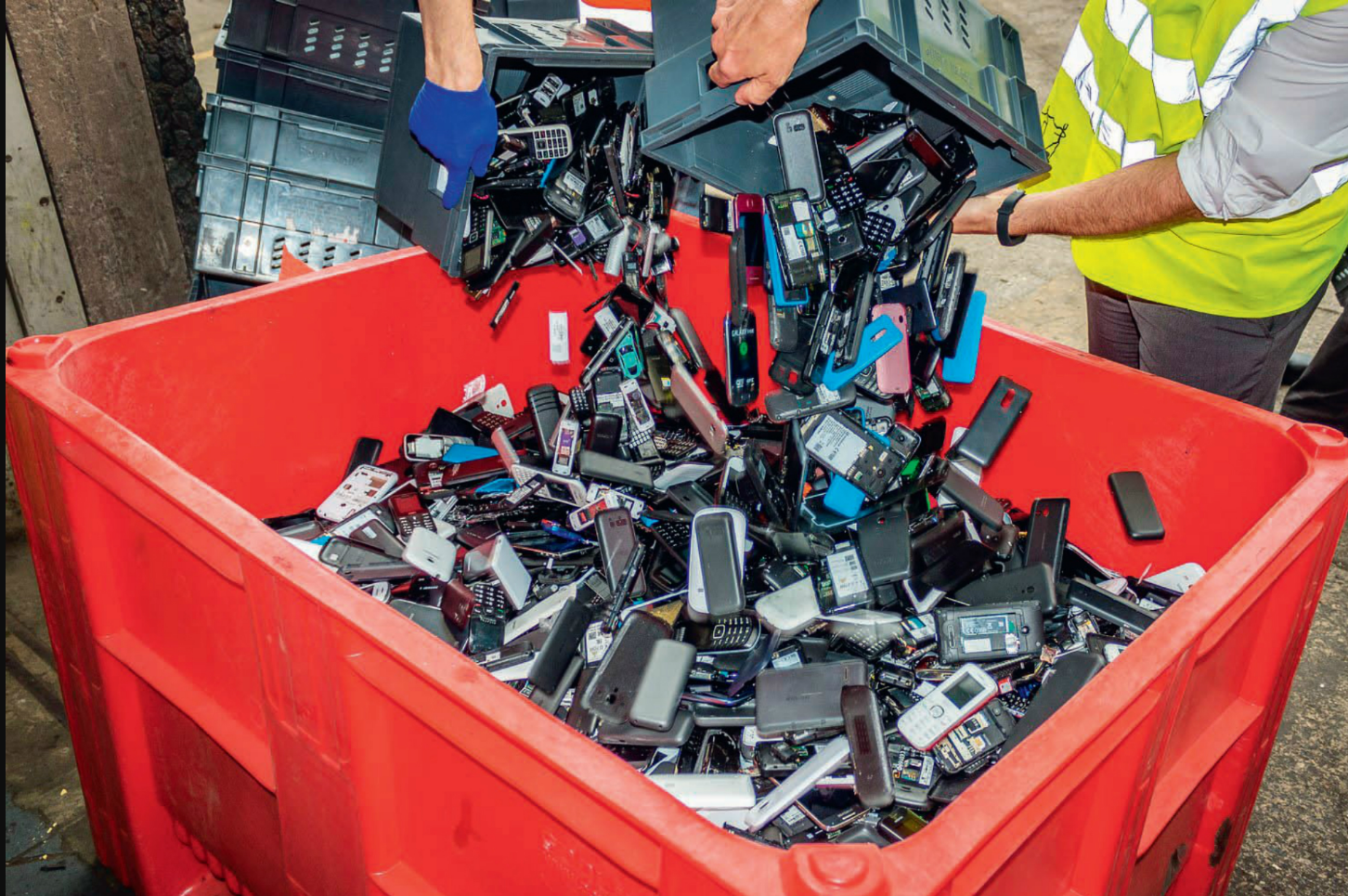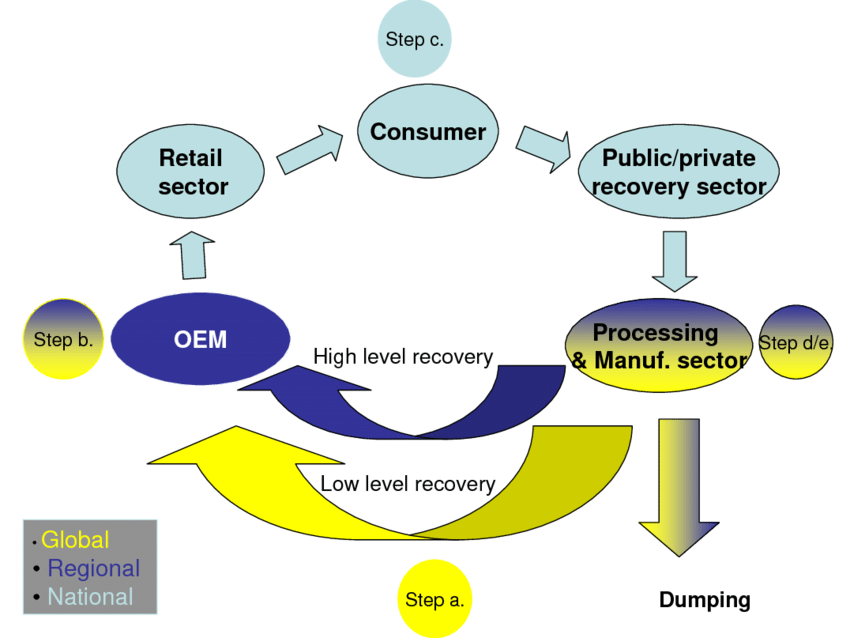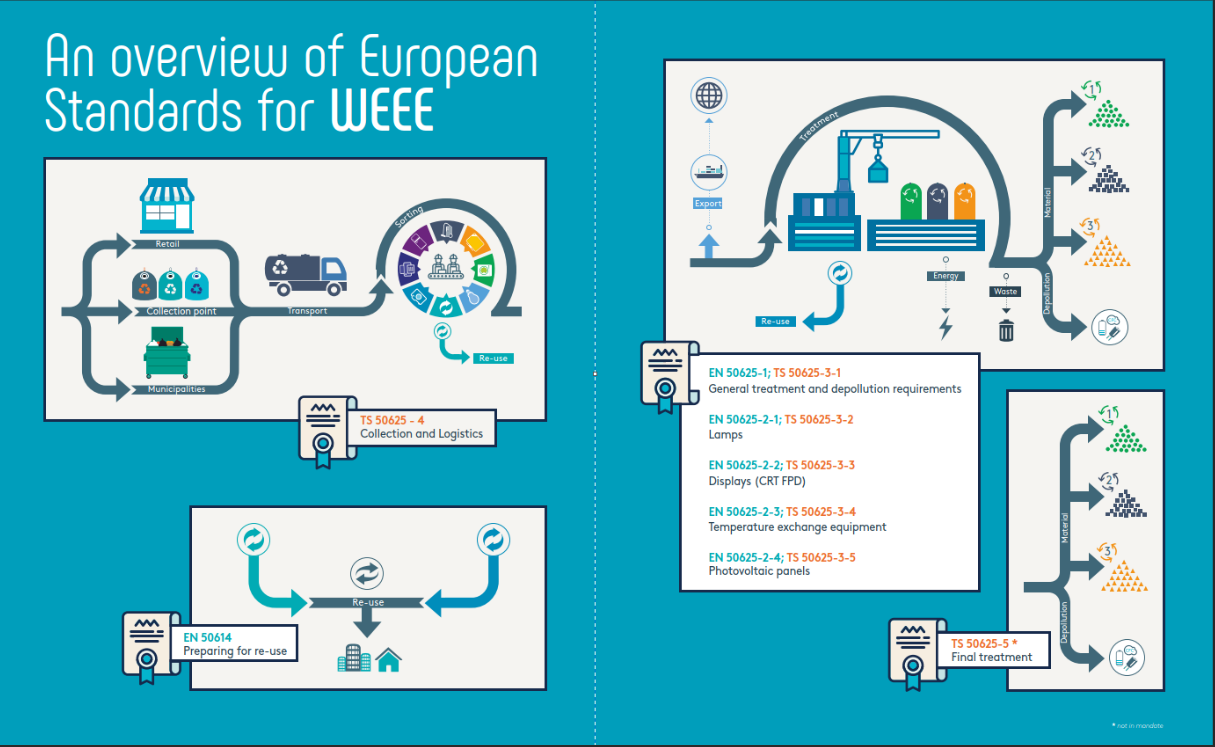Where are we from WEEE

By: Tareq Aljumylee
First Published 06.AUG.2020
A kind invitation from EEAKSA Egyptian Engineers Association to attend lecture about the management of Waste Electrical and Electronic Equipment (WEEE) which is also called e-waste.
The lecture titled "ELECTRONIC WASTE MANAGEMENT" held by Prof Dr. Hani Ahmed Munib
Definition:
“‘electrical and electronic equipment’ or ‘EEE’ means equipment which is dependent on electric currents or electromagnetic fields in order to work properly and equipment for the generation, transfer and measurement of such currents and fields and designed for use with a voltage rating not exceeding 1 000 volts for alternating current and 1 500 volts for direct current;”
Electrical and electronic equipment (EEE) such as computers, TV-sets, fridges and cell phones pervades modern lifestyles but its quick obsolescence is resulting in huge quantities of waste electrical and electronic equipment (WEEE) (Khetriwal et al., 2011). WEEE typically includes a diverse range of materials potentially harmful to humans and the environment but is also regarded as a resource of valuable metal (Friege et al., 2015). The amount of WEEE is growing faster than any other waste category in the world. Material recycling is not done sufficiently.
Collection, treatment and recycling of WEEE is essential to improve the environmental management, contribute to circular economy, and enhance resource efficiency.
WEEE handling Process

European established a set of standards to address different phases.

This is excellent start to take care of our societies and needs to be complemented by a series of lecture to deepen the knowledge in this topics and start thinking in the circular economy and touching on different processing technologies.
References:
1-IVL-report B 2243 The role of the WEEE collection and recycling system setup on environmental, economic and socio-economic performance.
2-Waste electrical and electronic equipment (WEEE) Handbook, Edited by Vannessa Goodship and Ab Stevels, ISBN 978-0-85709-633-3
3-Slides from the lecture.